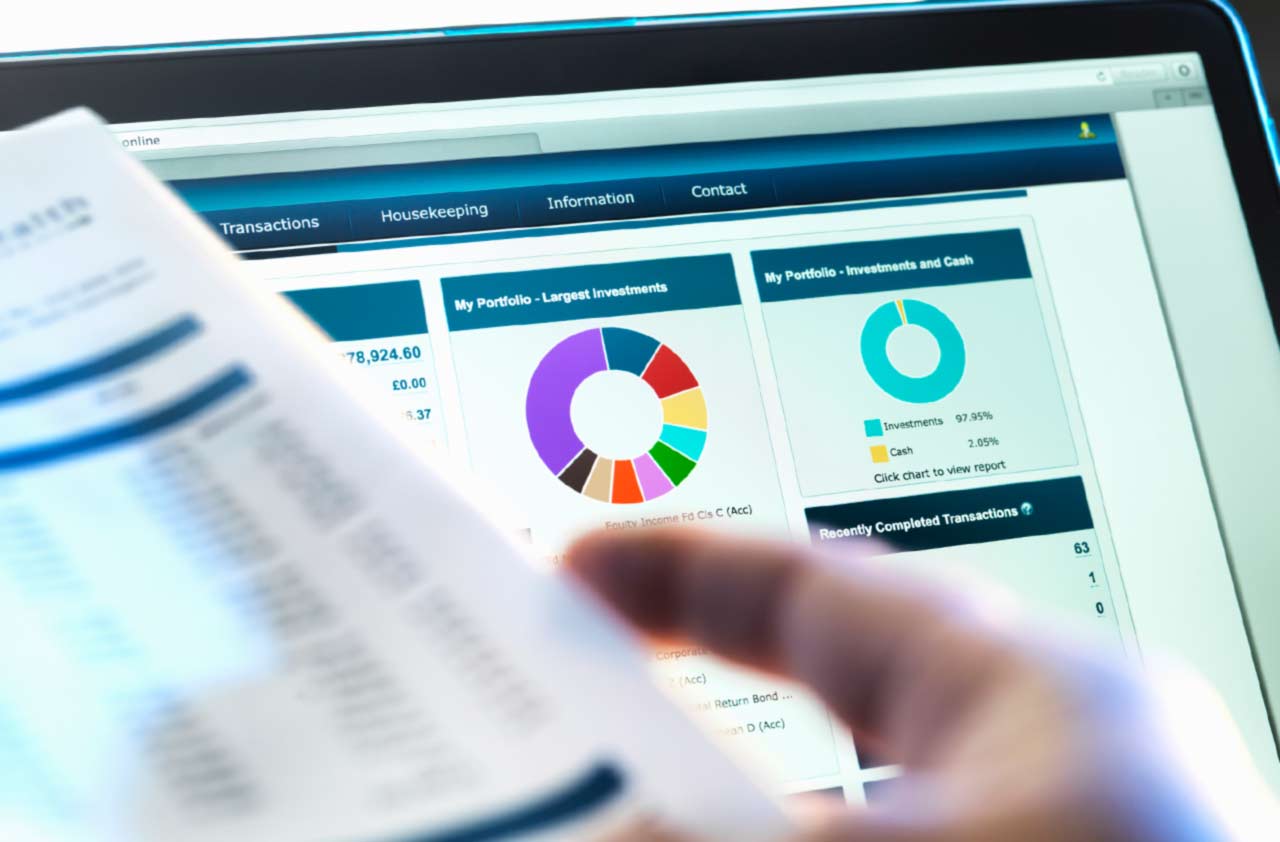7 Year-End Strategies That Can Help You Save On Taxes


Profit and prosper with the best of Kiplinger's advice on investing, taxes, retirement, personal finance and much more. Delivered daily. Enter your email in the box and click Sign Me Up.
You are now subscribed
Your newsletter sign-up was successful
Want to add more newsletters?

Delivered daily
Kiplinger Today
Profit and prosper with the best of Kiplinger's advice on investing, taxes, retirement, personal finance and much more delivered daily. Smart money moves start here.

Sent five days a week
Kiplinger A Step Ahead
Get practical help to make better financial decisions in your everyday life, from spending to savings on top deals.

Delivered daily
Kiplinger Closing Bell
Get today's biggest financial and investing headlines delivered to your inbox every day the U.S. stock market is open.

Sent twice a week
Kiplinger Adviser Intel
Financial pros across the country share best practices and fresh tactics to preserve and grow your wealth.

Delivered weekly
Kiplinger Tax Tips
Trim your federal and state tax bills with practical tax-planning and tax-cutting strategies.

Sent twice a week
Kiplinger Retirement Tips
Your twice-a-week guide to planning and enjoying a financially secure and richly rewarding retirement

Sent bimonthly.
Kiplinger Adviser Angle
Insights for advisers, wealth managers and other financial professionals.

Sent twice a week
Kiplinger Investing Weekly
Your twice-a-week roundup of promising stocks, funds, companies and industries you should consider, ones you should avoid, and why.

Sent weekly for six weeks
Kiplinger Invest for Retirement
Your step-by-step six-part series on how to invest for retirement, from devising a successful strategy to exactly which investments to choose.
In the novel David Copperfield, Charles Dickens called procrastination the “thief of time.”
Procrastination also can cost you plenty of cold hard cash when it comes to your income taxes.
There are several strategies that can help you reduce your taxes this year and in the future — but you must move quickly. You’ll have to beat certain deadlines, or the opportunities will disappear.

1. Maximize your savings.
Consider putting more money into your individual retirement accounts, Roth IRAs, 401(k)s, 403(b)s, etc. Saving any amount toward your retirement is smart — but if you can, consider contributing the maximum allowed.
- The limit for tax-deferred retirement accounts (such as 401(k), 401(b), most 457 plans and the Thrift Savings Plan) is $18,000 for 2017, and you have until Dec. 31 to get the money in there. Savers over 50 also can make a catch-up contribution of $6,000 for a total of $24,000.
- No 401(k)? You can contribute up to $5,500 ($6,500 if you’re 50 or older) to a traditional IRA and/or Roth IRA until April 15, 2018, and have it count toward your 2017 taxes. The Roth won’t reduce your current tax bill, but earnings and withdrawals are typically income tax-free — something you’ll love in the future.
- Two other options are available for those who are self-employed: a SEP IRA and a Solo 401(k). Each has a maximum contribution amount of $54,000, or $60,000 for those over 50.

2. Look at your losses.
Although 2017 was a great year for most investors, many still have stocks, exchange traded funds (ETFs) or mutual funds that experienced a capital loss. If these losses are greater than your capital gains, you may be able to deduct them from your ordinary income — up to $3,000. If you can’t write off all your stock losses this year, you can carry over the loss to future tax years. (There are rules for making these calculations, so be sure to consult your tax professional.)


4. Accelerate your deductions.
You also may want to look at paying some deductible expenses this year rather than next to temporarily lower your income. If you use a credit card to pay one or more of next year’s bills today, you can deduct the expenses in 2017, then pay off that amount next year. (This would work for medical or dental expenses, for example, or if you’re planning to add solar panels to your home.) If you’re retired or self-employed, prepaying the balance of your estimated state tax liability this year rather than waiting for January would secure the deduction for this current tax year.

5. Consider donating appreciated securities to charity.
Most publicly traded securities with unrealized long‐term gains can be donated to a public charity (501(c)(3). You can then claim the fair market value as an itemized deduction on your federal tax return — up to 30% of your adjusted gross income. You won’t owe capital gains taxes because the securities were donated, not sold. If you wish to make a larger contribution ($5,000 or more), look at establishing a donor-advised fund. Most mutual fund companies offer this charitable-giving program.

6. Put off that mutual fund purchase.
Here’s one strategy where a little delay could pay off. Most mutual funds distribute capital gains at the end of the year, and if the fund is in a non-qualified account (meaning a tax-deferred account such as a 401(k) or 403(b) plan), that money is taxable to you regardless of when you made the purchase. If you buy the mutual fund after the capital gains distribution, you’ll not only avoid the federal income tax, but the price will usually drop, so you could get it for less.

7. Make financial gifts.
This tip won’t help you reduce taxes, but it may help shield your money from federal estate and gift taxes. For 2017, federal estate taxes kick in for individuals with estates exceeding $5.49 million. You can give up to $14,000 in non-taxable gifts this year to as many people as you like and can afford. And the gifts don’t count toward your lifetime exemption from this gift tax.

Take the next step now.
These are just a few of the year-end strategies you can use to manage your tax liability. Don’t miss out by waiting until the new year to think about your tax return. Talk to your financial adviser and tax professional as soon as possible about how you can reduce your taxes in 2017.
Kim Franke-Folstad contributed to this article.
Michael Woloshin is an Investment Adviser Representative, insurance professional and the founder and managing director of Woloshin Investment Management. His priority is helping those who are about to retire or who already have retired pursue their financial independence utilizing customized income strategies. Woloshin has over 35 years of experience advising clients.
Profit and prosper with the best of Kiplinger's advice on investing, taxes, retirement, personal finance and much more. Delivered daily. Enter your email in the box and click Sign Me Up.

Michael Woloshin is an Investment Adviser Representative, insurance professional and the founder and managing director of Woloshin Investment Management. His priority is helping those who are about to retire or who already have retired pursue their financial independence utilizing customized income strategies. Woloshin has over 35 years of experience advising clients.
-
 Dow Leads in Mixed Session on Amgen Earnings: Stock Market Today
Dow Leads in Mixed Session on Amgen Earnings: Stock Market TodayThe rest of Wall Street struggled as Advanced Micro Devices earnings caused a chip-stock sell-off.
-
 How to Watch the 2026 Winter Olympics Without Overpaying
How to Watch the 2026 Winter Olympics Without OverpayingHere’s how to stream the 2026 Winter Olympics live, including low-cost viewing options, Peacock access and ways to catch your favorite athletes and events from anywhere.
-
 Here’s How to Stream the Super Bowl for Less
Here’s How to Stream the Super Bowl for LessWe'll show you the least expensive ways to stream football's biggest event.
-
 States That Tax Social Security Benefits in 2026
States That Tax Social Security Benefits in 2026Retirement Tax Not all retirees who live in states that tax Social Security benefits have to pay state income taxes. Will your benefits be taxed?
-
 What to Do With Your Tax Refund: 6 Ways to Bring Growth
What to Do With Your Tax Refund: 6 Ways to Bring GrowthUse your 2024 tax refund to boost short-term or long-term financial goals by putting it in one of these six places.
-
 What Does Medicare Not Cover? Eight Things You Should Know
What Does Medicare Not Cover? Eight Things You Should KnowMedicare Part A and Part B leave gaps in your healthcare coverage. But Medicare Advantage has problems, too.
-
 12 Great Places to Retire in the Midwest
12 Great Places to Retire in the MidwestPlaces to live Here are our retirement picks in the 12 midwestern states.
-
 15 Cheapest Small Towns to Live In
15 Cheapest Small Towns to Live InThe cheapest small towns might not be for everyone, but their charms can make them the best places to live for plenty of folks.
-
 15 Reasons You'll Regret an RV in Retirement
15 Reasons You'll Regret an RV in RetirementMaking Your Money Last Here's why you might regret an RV in retirement. RV-savvy retirees talk about the downsides of spending retirement in a motorhome, travel trailer, fifth wheel, or other recreational vehicle.
-
 The 24 Cheapest Places To Retire in the US
The 24 Cheapest Places To Retire in the USWhen you're trying to balance a fixed income with an enjoyable retirement, the cost of living is a crucial factor to consider. Is your city the best?
-
 The Six Best Places to Retire in New England
The Six Best Places to Retire in New Englandplaces to live Thinking about a move to New England for retirement? Here are the best places to land for quality of life, affordability and other criteria.
